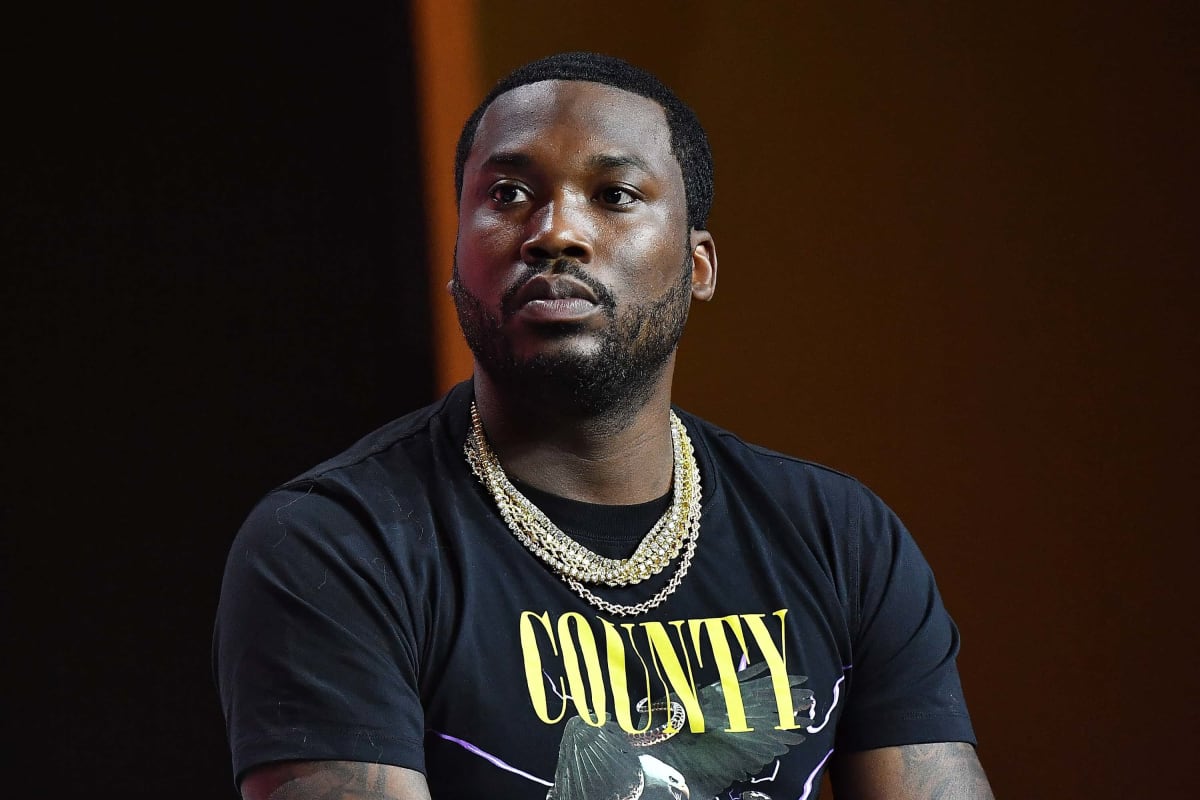What happened to Meek Mill? 'Dateline: Secrets Uncovered' sheds light on rapper's decade-long legal battle

NORTH PHILADELPHIA, US: In 2008, American rapper and philanthropist Meek Mill faced legal issues, resulting in convictions for drug dealing and gun possession.
Philadelphia judge Genece Brinkley sentenced him to 11 to 23 months in prison, where his decade-long legal battle started.
Mill's 12-year legal journey was marked by a sequence of legal difficulties, ranging from probation infractions and travel-related problems to actual arrests.
The challenges commenced in 2012, initiating a cycle of court appearances and probation revocations.
Despite Mill's efforts to adhere to the legal requirements, subsequent violations and arrests in 2015 and 2017 intensified the legal complexities.
The culmination of these legal issues led to a significant consequence: a two to four-year prison sentence for the rapper.
This outcome highlighted the persistent challenges and setbacks Mill faced in his interactions with the justice system over the years.
'Dateline: Secrets Uncovered' Season 12 new episode 'Dreams and Nightmares: The Meek Mill Story' airs on Wednesday, March 6, 2024 at 8 PM ET on Oxygen.
The show aims to shed light on this narrative, delving deeper into the rapper's stance on his legal drama and overall social justice.
What did rapper Meek Mill do?
In 2008, Meek Mill encountered legal troubles resulting in convictions for possessing drug paraphernalia and second-degree possession of a loaded firearm as a convicted felon.
Judge Genece Brinkley of the Philadelphia County Superior Court sentenced him to 11 to 23 months in prison, followed by eight years of probation.
Surprisingly, despite the conviction, Judge Brinkley continued overseeing Mill's subsequent legal matters and probation.
After serving seven months, Meek Mill was released in early 2009 under a five-year parole agreement.
In a significant turn of events in January 2023, Pennsylvania Governor Tom Wolf granted him a pardon, clearing his record of these convictions.
However, in 2017, due to his previous convictions, Meek Mill found himself incarcerated again, sparking a widespread public debate about the justice system and fueling calls for criminal justice reform.
His case gained immense attention, with many arguing that the punishment was disproportionate. Advocacy for his release intensified during his incarceration, ultimately leading to his release on April 24, 2018.
The Pennsylvania Supreme Court granted him bail pending the outcome of an appeal, shedding light on issues of parole, probation, and sentencing disparities within the legal system.
Mill's experiences brought renewed scrutiny to these systemic problems and contributed to the ongoing dialogue about the need for reform in the criminal justice system.

Why was Meek Mill on probation?
When Meek Mill was 18, a significant incident unfolded that marked a turning point in his life. While heading to a corner store, he was arrested for carrying a firearm illegally.
The arrest took a distressing turn as he became a victim of police brutality, experiencing swelling in his lips and eyes, along with the forceful removal of one of his braids.
The legal consequences escalated, and Meek found himself charged with attempted or aggravated assault against a police officer.
The charges were based on the statements of two black officers who asserted that Meek had chased them down with a gun and attempted to shoot one of them.
This led to the rapper being placed on probation, setting the stage for his complex relationship with the legal system and shaping his advocacy for criminal justice reform in the years that followed.

Why was Meek Mill convicted?
In 2008, Mill found himself entangled in legal troubles, resulting in convictions for possession of drug paraphernalia and second-degree possession of a loaded firearm as a previously convicted felon.
This led to a stern sentencing by Philadelphia County Superior Court Judge Genece Brinkley, who imposed an 11 to 23-month prison term, followed by eight years of probation.
Despite this conviction, Judge Brinkley continued to preside over Mill's subsequent legal matters and supervised his probationary period.
After serving seven months in prison, Mill was released in early 2009 under a five-year parole agreement.
Fast forward to January 2023, and a significant turn of events occurred. Pennsylvania Governor Tom Wolf granted Mill a pardon for the 2008 convictions, effectively clearing his record.
This pardon marked a crucial milestone in Meek Mill's legal journey, providing him with a fresh start and officially acknowledging the evolution of his circumstances since the initial legal challenges.

What reform did Meek Mill bring to the justice system?
Meek Mill played a pivotal role in transforming probation laws in Pennsylvania through his involvement with the REFORM alliance.
The catalyst for establishing this alliance was Meek Mill's personal experience – his incarceration in November 2017 sparked a global #FreeMeekMill movement.
This widespread advocacy led to his release on bail in April 2018 and, subsequently, the overturning of his original conviction. Mill's journey through the criminal justice system fueled his commitment to driving change.
Utilizing his influential public platform, he raised awareness about systemic issues within the criminal justice system, emphasizing their disproportionate impact on multicultural communities.
The REFORM alliance became a powerful vehicle for Mill to channel his advocacy efforts, aiming to bring about significant reforms in probation laws and address the broader injustices prevalent in the criminal justice system.

What does the Senate Bill 838 do?
Senate Bill 838 is set to bring significant changes to Pennsylvania's probation laws, to make the probation system less severe and counterproductive.
The adjustments outlined in the bill will be implemented gradually over the next five years, impacting an estimated 300,000 individuals under probation.
The bill, categorized as an Act amending Title 42 (Judiciary and Judicial Procedure) of the Pennsylvania Consolidated Statutes, focuses on modifying aspects related to the order of probation.
This includes conditions of probation and the procedures for modification or revocation of probation orders, introducing a new component known as the probation review conference.
The bipartisan initiative, championed by Attorney General Shapiro, seeks to address a longstanding issue – individuals on probation facing imprisonment due to technical violations.
The ultimate goal is to prevent unnecessary incarceration for such violations, offering a more rehabilitative and fair approach to the probation system in Pennsylvania.











